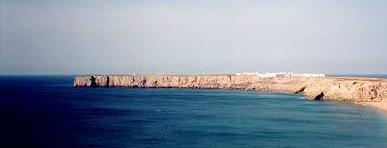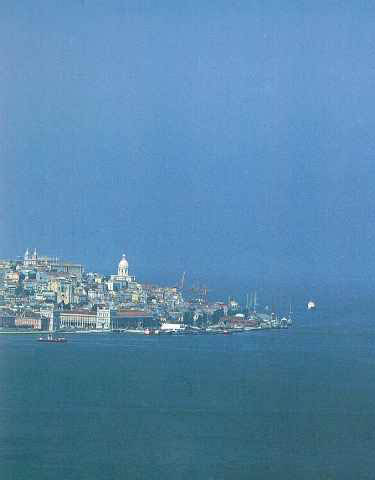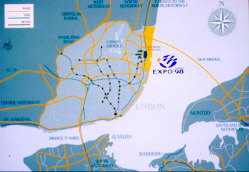F
ive Hundred Years ago in this tiny little town of Sagres, Portuguese mariners planed their explorations of the boundless seas and their discovery's in the New World.

T
he Portuguese navigator Vasco da Gama prayed throughout the night of 7 July 1497 in the old mariners' chapel in Belém for the safe return of his captains and crew from their forthcoming vovage to India. the Portuguese proved they were world pioneers by bringing to fruition what we would describe today as an integrated project: for a century they had been working on a great enterprise which involved the pure sciences, technology, finance, planning, political support, and the sheer ability to get things done. Vasco da Gama faced everything the Ocean threw at him and met the challenge, achieving the supreme objective of Portugal's 15th-century epic: to reach India by sea. After his return two years later, King Dom Manuel I, to give thanks for his successful return, built the Jerónimos Monastery to replace the chapel. Vasco da Gama's body now lies at rest in this Monastery.Five Hundred Years later


Lisbon, Portugal's capital since the 12th century, is the economic and social centre of a region of about 3 million people. As an Atlantic city, it was one of the most important trading posts in 15th century Europe, when fleets left on their quest to conquer the seas. Lisbon had by then become one of the most important economic and cultural centres in Europe. A cosmopolitan city, open to the world, Lisbon was a meeting place for all races, cultures and ways of life. People from all continents and oceans congregated here, one of the legacies Lisbon retains to this day.

The last decade of our century will be marked by the great debate on how the oceans are to be integrated into the sustainable development of the planet. Bearing in mind the increasingly intensive use of the oceans, it is decisive for world ecological balance to avoid the threat of rapid destruction of their formidable life potential and resources. For this reason, the theme of the 1998 Exposition will be "The Oceans, a Heritage for the Future".

